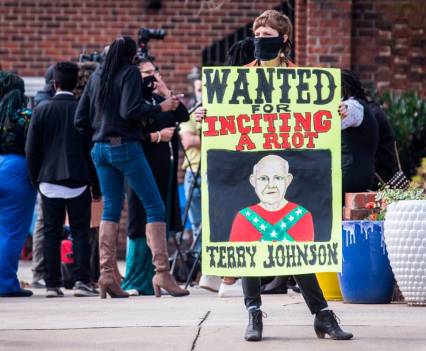
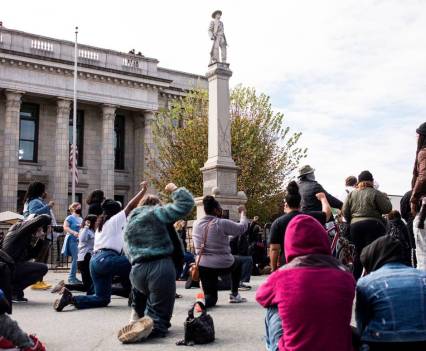
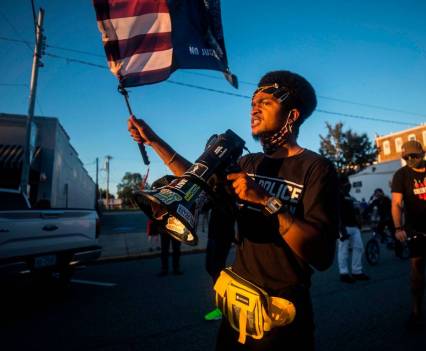
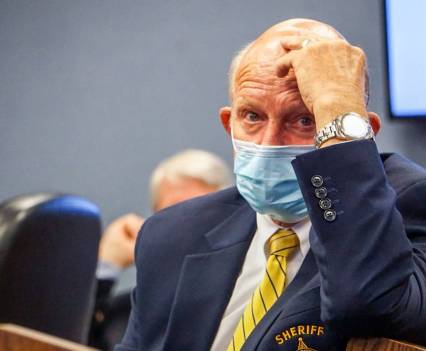
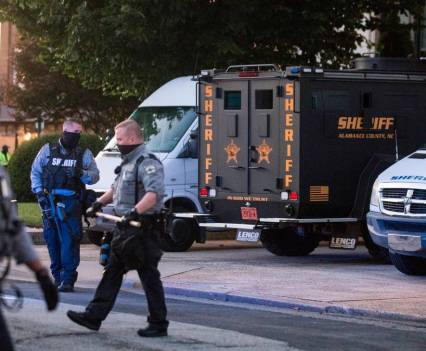
Organizations
News & Observer
ProPublica
Award
Excellence in Social Justice Reporting, Single Story
Program
2021
Entry Links
Link 1
It has a level of depth you very rarely see in a single story. A particularly noteworthy element is essentially telling the story of a place over many decades; how generation after generation can drive these mentalities and these conflicts. The use of video throughout was well-done, and would have been worthy of a watch all on its own.
“Sound of Judgment” is a longform narrative that brings readers to Graham, North Carolina, a small town that became one of this country’s most active Black Lives Matter protest sites after a police officer murdered George Floyd in May 2020. It provides a rare look at the racial justice movement outside of the biggest American cities and highlights, through three interlocking profiles, the historical currents that contributed to this upsurge in activism and the vigorous resistance with which it has been met.
A collaboration between the Raleigh News & Observer and ProPublica, the project demonstrates the power of blending immersion reporting, narrative writing and video storytelling in digital publishing. Reporter Carli Brosseau and visual journalist Julia Wall make human a notoriously aggressive sheriff, a gang member turned Black Lives Matter activist and a grieving factory worker who found meaning in devotion to the Confederate Lost Cause.
Brosseau’s deep source-building across social spheres made it possible to do something journalistic stories rarely accomplish: portray multiple sides of a seething conflict with detail, complexity and accuracy. The reporting revealed an unusual view into how social movements transform people and how inextricably tangled local and national political dynamics are.
“Sound of Judgment” also stands out for making concrete connections between the past and the present. Black activists respond to a protest ban with walking “history tours” that share details of a lynching. The sheriff employs force he says could have warded off killings at a protest that he was assigned to help keep peaceful 40 years ago. Vigilantes invoke the ugliest aspects of the town’s history by pantomiming hangings and donning white hoods.
What happened in Graham is ideal for illuminating both the influence of history and the persistence of racism across generations. The lynching of prominent Black resident Wyatt Outlaw there in 1870 not only ushered in the end of Reconstruction in North Carolina it helped inspire “The Birth of a Nation.” That blockbuster 1915 movie catalyzed a resurgence of the Klan and seeded racial stereotypes into American culture that influence public policy today.
Telling this story required creative and broad reporting strategies, including archival research, data analysis and collecting hours upon hours of video and audio recordings captured by various participants in the conflict. This extensive documentation allowed Brosseau, working closely with ProPublica senior editor T. Christian Miller, to write with authority about people with opposing worldviews in an unsettled time.
The Online Journalism Awards™ (OJAs), launched in May 2000, are the only comprehensive set of journalism prizes honoring excellence in digital journalism around the world.
